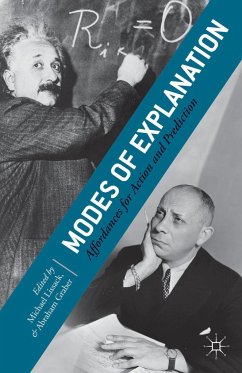
Evolution of Morals
An Interdisciplinary Inquiry into the Nature of Human Behavior

PAYBACK Punkte
0 °P sammeln!
Carlos Stegmann is a civil engineer whose disposition always led him to have a main interest in the multidisciplinary overview of large and complex planning studies, a subject on which he accumulated a 40-year experience, having acted as coordinator of many such studies. It was this diposition, this innate tendency always to strive for the composite whole, and the application of his experience to the subject of morals, which originated the interdisciplinary insights of his thesis of moral evolution, which is the subject of this book. It is important to stress this interdisciplinary experience,...
Carlos Stegmann is a civil engineer whose disposition always led him to have a main interest in the multidisciplinary overview of large and complex planning studies, a subject on which he accumulated a 40-year experience, having acted as coordinator of many such studies. It was this diposition, this innate tendency always to strive for the composite whole, and the application of his experience to the subject of morals, which originated the interdisciplinary insights of his thesis of moral evolution, which is the subject of this book. It is important to stress this interdisciplinary experience, for to be able to produce credible results, an attempt to explain something as pervadingly inclusive as human behavior must include all the manifestations of this behavior, from the cognitive to the physiological. No other work on human morals offers such an interdisciplinary approach, and the inquiry presented in this book may be considered the first of this kind.













